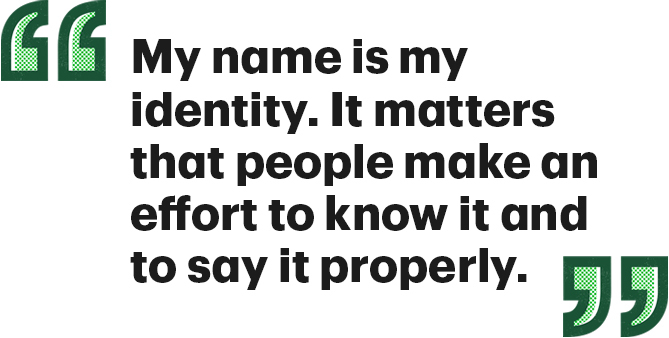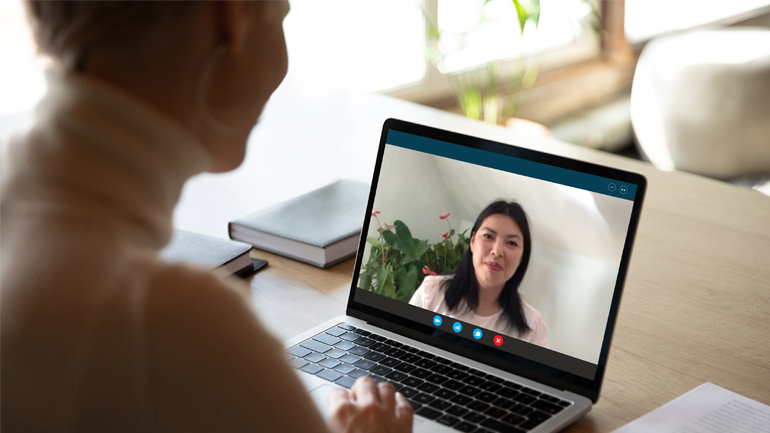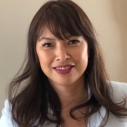When I was six years-old my mother cut off most of my hair to avoid lice in the refugee camp where my family lived just before we moved to Canada as political refugees from Vietnam. Because I also had a Vietnamese name that no one could pronounce, my biggest problem at school in Aylmer, Quebec, where I grew up, was that no one knew at first if I was a boy or a girl.
My father named me Ngoc Uyen. Ngoc means precious or gem in Vietnamese, and Uyen means wisdom or knowledge. The combined meaning is preciousness of wisdom. A Buddhist, my father put a lot of thought into creating harmony between my first and second names. He believed the name would help me possess precious wisdom within my life.
When we arrived in Canada, my first name, Ngoc, was dropped accidentally in much of the paperwork required of new refugees and on school forms. As newcomers to Canada, my parents didn’t understand how first, middle and last names work here. In Vietnamese tradition, you are given two names, the first enhances the second, which is what you go by. So, instead of Ngoc Uyen Vo, I became Uyen Vo and lost a piece of my identity.
And yet, despite being the only Asian female in my school growing up, and having a name that no one could pronounce correctly in English, it wasn't until 2020 when attacks against Asian Canadians became more prevalent as a result of a surge of anti-Asian racism sparked by the COVID-19 pandemic, that I became afraid to go out in public for the first time in my life.
After reading reports of people of Asian descent being attacked out in public—and despite the fact that I have been living in my community of Gatineau, Quebec, for most of my life and always felt safe—I began to be afraid of being assaulted at the grocery store or screamed at on the street as the target of anti-Asian racism.
But after expressing this fear to a few people close to me, something inside me began to shift.

Using my ethnic name
As more reports of these attacks were publicized, I began to want to push past my usual shyness and decided that I needed to take more of a stand against this, and other forms of racism. I wanted to be an ally, and decided I would start with my own name.
My name is my identity. It matters that people make an effort to know it and to say it properly.
The first thing I did was add the pronunciation of my name to my email signature at work. Before this, I had been too shy to correct people when they said my name incorrectly, which happened frequently. I added a phonetic way to say it in a way that makes sense in English. The way Vietnamese is spoken is very different than English, so I've slightly altered the pronunciation of my second name (Uyen) so that it is pronounced 'win' in English, making it easier for most people to pronounce.
Even though I was stepping out of my comfort zone in doing this, I felt the environment and inclusive culture at TD was supporting me in this decision, so when I heard about a video being created for TD colleagues that featured some of our co-workers speaking about their decision to start using their true, ethnic name or sharing stories about their names, I knew that I wanted to be a part of it.
I knew that I wanted to share the story behind my name, the name that my father had put so much thought into.
Culturally, I am much more accustomed to not voicing many of my views and to speaking in a soft voice, but this was important to me. My name is important to me. It serves as a key identifier of who I am. When pronounced correctly, it conveys respect and inclusion.
Stepping out of my comfort zone
The video has been published internally for thousands of colleagues to see. For almost everyone – even those with whom I work closely – it was the first time they had ever heard my name stated the way it is intended.
Being in this video is a huge step and makes me feel vulnerable. I haven't yet told my parents about it or how I am insisting people use my correct name, but I've realized that this is one small way that I can be more of an ally in creating a more inclusive culture.
None of this would have been possible for me if I also hadn't felt supported by the inclusive and diverse culture at TD, so I am grateful for the opportunity to be brave, to step out of my comfort zone and take up more of the space I am owed for the benefit of everyone, regardless of race or ethnicity.
Today, I am an ally in name and in practice.

